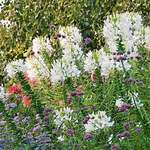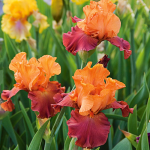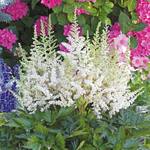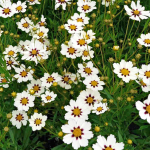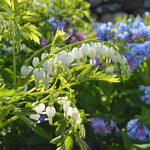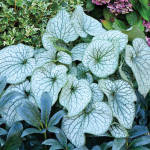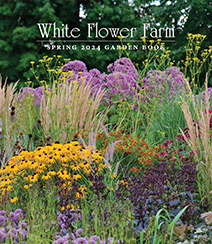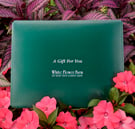Product Details
The large, billowy white blooms of Papaver somniferum 'Sissinghurst White' are descended from flowers originally grown at the famous English castle that gives this plant its name. The blooms attract bees and butterflies while adding a pure and elegant presence to sunny gardens. The gently pleated, silky flowers flatter a wide range of companions. They can also be featured in a white garden, or cut for bouquets. Plants are resistant to deer and tolerant of drought.
For more information on growing Poppies, click Growing Guide.
Shipping
HOW PLANTS ARE SHIPPED
The size of the plants we ship has been selected to reduce the shock of transplanting. For some, this means a large, bareroot crown. Others cannot travel bareroot or transplant best if grown in containers. We ship these perennials and annuals in 1 pint pots, except as noted. We must point out that many perennials will not bloom the first year after planting, but will the following year, amply rewarding your patience. We ship bulbs as dormant, bare bulbs, sometimes with some wood shavings or moss. Shrubs, Roses, vines, and other woody plants may be shipped bareroot or in pots. The size of the pot is noted in the quick facts for each item.
WHEN WE SHIP
We ship our bulbs and plants at the right time for planting in your area, except as noted, with orders dispatched on a first-come, first-served basis by climate zone. We also ship a wide range of containers and planters, tools, supplies, fertilizers, garden wear, garden decor items, as well as indoor decorations like wreaths and dried bouquets when available. Estimated dates for shipping are indicated in the green Shipping Details box for each item. Please supply a street address for delivery. Kindly contact us with two weeks notice, if you'll be away at the expected time of delivery.
OUR GUARANTEE
We guarantee to ship plants that are in prime condition for growing. If your order is damaged or fails to meet your expectations, we will cheerfully replace or refund it. Please contact our Customer Service Department at 1-800-503-9624 or email us at [email protected]. Please include your order number or customer number when contacting us.
Reviews
There are no reviews yet. Be first to Write a Review.
Growing guide
Latin Name Pronunciation: pah-pah'-ver
Annual Poppies are a great choice for rocky, gravelly soils, and will readily self-sow in conditions they like. The flowers are colorful, but fleeting, lasting only a day or two.
Please note: The plants have a long taproot and don’t like to be moved once planted. When you receive your potted plant from us, be sure to remove the entire root ball when planting your Annual Poppy so as not to disturb that taproot.
Light & Water: Plant Annual Poppies in a full sun location. Once plants are established they don’t need a lot of water. Overwatering causes plants to become very tall and leggy.
Soil and pH: Annual Poppies prefer well-drained areas and thrive in poor garden soil and in soil that is often disturbed (like a gravel path), though they will perform in average garden soil too. They like soil that has a pH of neutral to slightly alkaline. You can test your soil with a Soil pH meter if you aren’t sure of what type of soil you have.
Location: Choose a full sun spot where your Annual Poppies can readily self-sow since the plants will do this naturally. Annual Poppy stems are frail and can be damaged by winds and heavy rain, so a sheltered location is ideal, but not necessary. The stems will need support either from surrounding plants, or garden stakes or hoops.
Pets/Animals: All Poppies contain alkaloids that are harmful to pets. Generally, pets and animals avoid Poppy plants, with the exception of rabbits, who quite like some varieties of Annual Poppies. After a brief sniff or taste, most animals find these plants distasteful and leave them alone, though it’s best to monitor pets to be on the safe side.
Deadheading: Keep your plants healthy by removing spent flowers.
Cut flowers: Annual Poppies are best enjoyed in the garden, as they are short-lived in vases. Because the stems release a milky sap when cut, the cut ends need to be seared with a match or dipped in hot water for 20-30 seconds (water should be at least 110 degrees F) before using the flowers in bouquets. Even with that treatment, the blooms will only last a couple of days.

